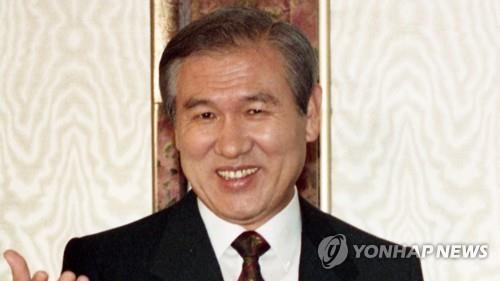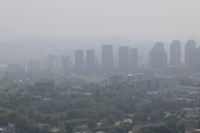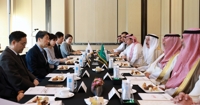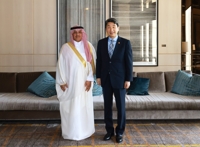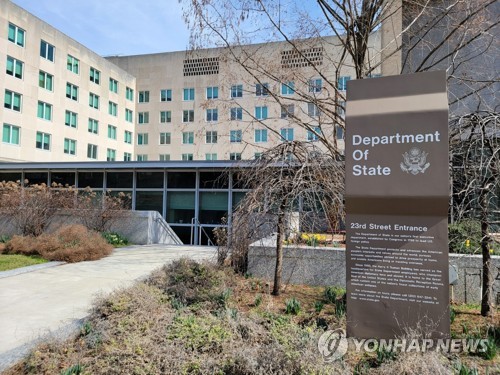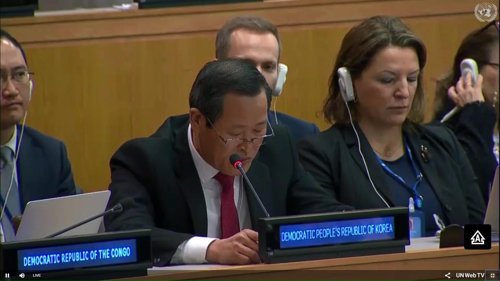(2nd LD) Former President Roh Tae-woo dies at 88
(ATTN: UPDATES throughout with details; ADDS photos)
By Lee Haye-ah
SEOUL, Oct. 26 (Yonhap) -- Roh Tae-woo, South Korea's last general-turned-president who played a key role in a 1979 coup before winning election through a direct vote at the start of South Korea's democratization, died Tuesday, aides said. He was 88.
Roh, who served as president from 1988-93, was recently admitted to a hospital after his health deteriorated but failed to recover, they said.
The former Army general rose to power after helping Chun Doo-hwan seize the presidency through a 1979 military coup in the wake of a power vacuum created by the death of former authoritarian President Park Chung-hee.
Roh, who was the commander of the 9th Army division at the time, belonged to the same class of the Korea Military Academy as Chun.
Under Chun, Roh served as the sports and interior ministers as well as a National Assembly member and chief of the then ruling Democratic Justice Party.
In June 1987, he won the party's presidential nomination and went on to win the election later that year.
Ahead of the election, pro-democracy rallies spread massively across the nation, prompting Roh to accept calls for a direct presidential system in what is known as the "June 29 Declaration."
He won the election through a direct vote.
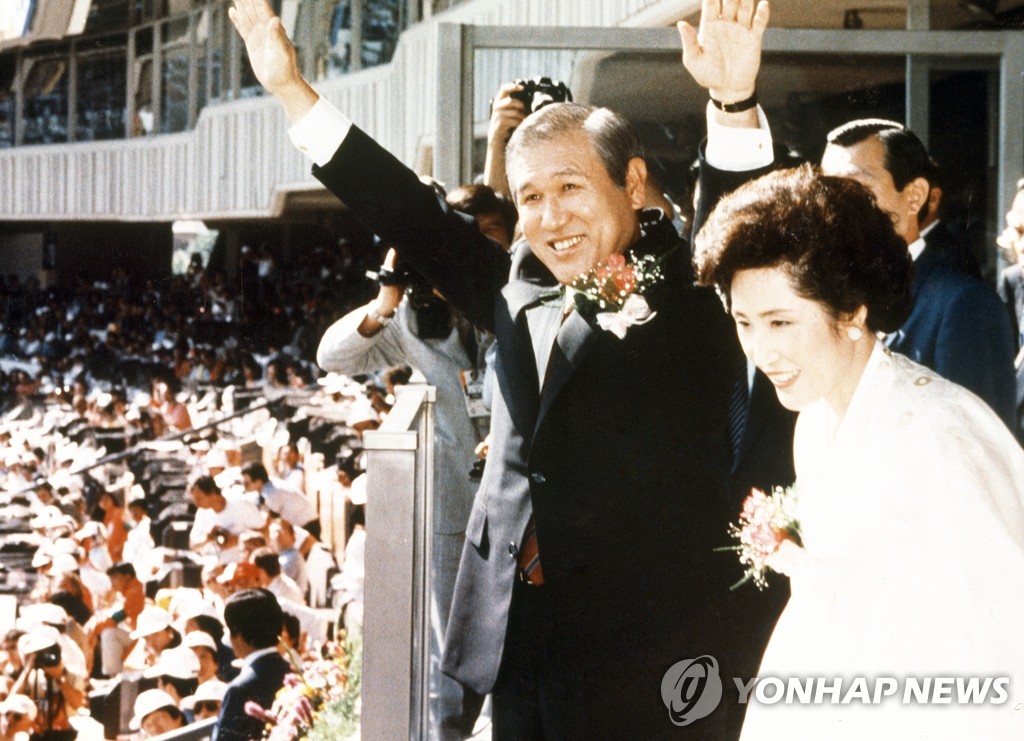
President Roh Tae-woo (L) and his wife, Kim Ok-suk, attend the opening ceremony of the 1988 Summer Olympics in Seoul in this file photo dated Sept. 17, 1988. (Yonhap)
In an apparent bid to shed his military image, Roh began his administration under the slogan of opening "an era of ordinary people."
He has been credited with building ties with socialist states and promoting inter-Korean exchanges during his term.
In 1991, South and North Korea were simultaneously admitted to the United Nations. South Korea also established diplomatic relations with the Soviet Union in 1990 and China in 1992.
In 1996, Roh and Chun were convicted of corruption and mutiny for their role in the 1979 military coup and in the brutal crackdown on the 1980 pro-democracy uprising in the southwestern city of Gwangju.
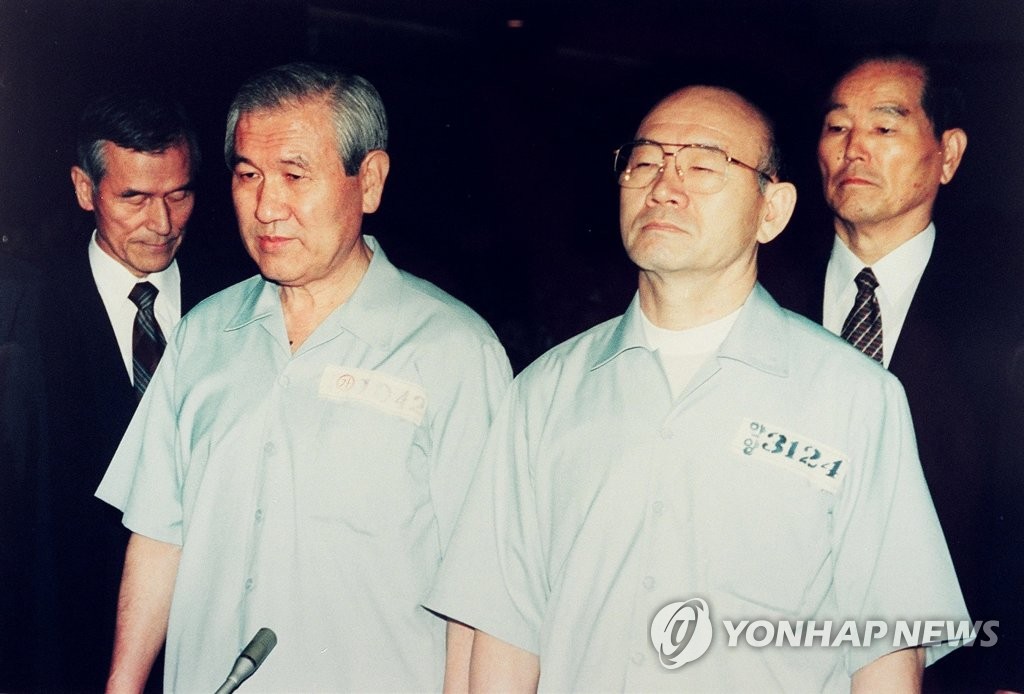
Former President Chun Doo-hwan (R) and his successor Roh Tae-woo stand in prison uniforms in a courtroom on trial on numerous counts of insurgency, graft and murder in Seoul, in this file photo dated Aug. 26, 1996. (Yonhap)
Roh was sentenced to 17 years in prison and around 260 billion won (US$223 million) in fines. He was pardoned in 1997 under the government of then-President Kim Young-sam and belatedly paid his fines in full in 2013.
Roh was born on Dec. 4, 1932 in what is now Daegu, 302 kilometers southeast of Seoul, as the first son of a local government clerk.
He is survived by his wife, former first lady Kim Ok-suk, and a daughter and son. Roh's daughter is currently undergoing divorce proceedings with SK Group Chairman Chey Tae-won.
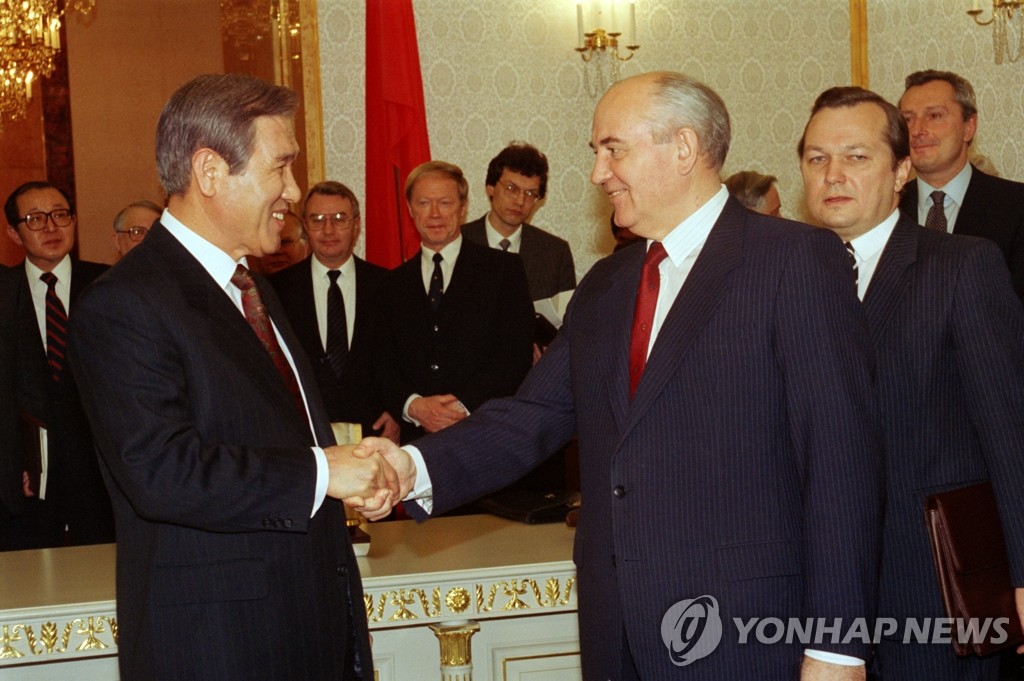
This file photo dated Dec. 14, 1990, shows South Korean President Roh Tae-woo (L) shaking hands with Soviet President Mikhail Gorbachev prior to their summit talks at the Kremlin in Moscow. (Yonhap)
hague@yna.co.kr
(END)
-
 BTS' Jungkook's 'Seven' chosen as hottest hit outside U.S.
BTS' Jungkook's 'Seven' chosen as hottest hit outside U.S. -
 From pastime to academic discipline: Exhibition spotlights evolution of Korean embroidery
From pastime to academic discipline: Exhibition spotlights evolution of Korean embroidery -
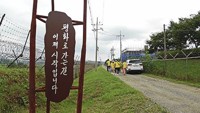 Gov't to open 10 trails near DMZ for visitors next month
Gov't to open 10 trails near DMZ for visitors next month -
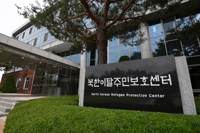 Number of N. Korean defectors entering S. Korea reaches 43 in Q1
Number of N. Korean defectors entering S. Korea reaches 43 in Q1 -
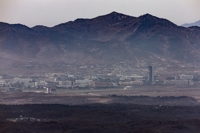 N. Korea dismantles S. Korean building near shuttered Kaesong complex
N. Korea dismantles S. Korean building near shuttered Kaesong complex
-
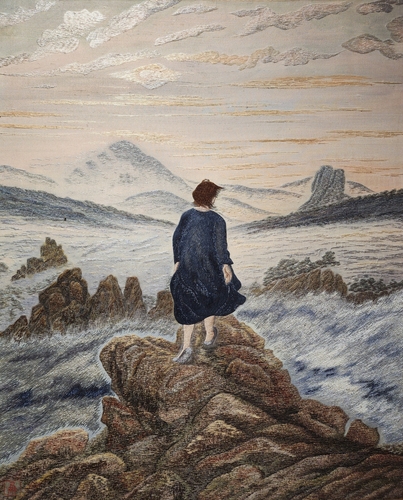 From pastime to academic discipline: Exhibition spotlights evolution of Korean embroidery
From pastime to academic discipline: Exhibition spotlights evolution of Korean embroidery -
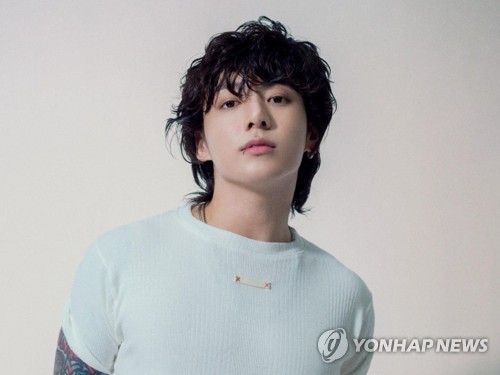 BTS' Jungkook's 'Seven' chosen as hottest hit outside U.S.
BTS' Jungkook's 'Seven' chosen as hottest hit outside U.S. -
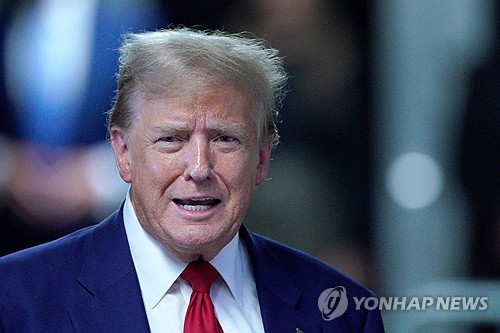 Trump suggests U.S. could withdraw its troops if S. Korea does not contribute more to support USFK: TIME
Trump suggests U.S. could withdraw its troops if S. Korea does not contribute more to support USFK: TIME -
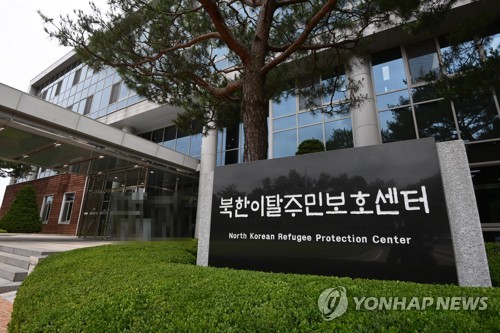 Number of N. Korean defectors entering S. Korea reaches 43 in Q1
Number of N. Korean defectors entering S. Korea reaches 43 in Q1 -
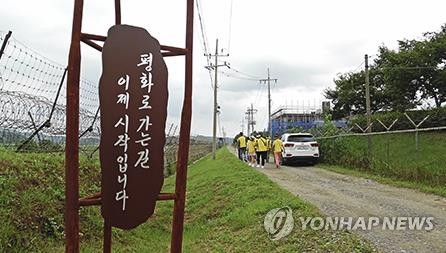 Gov't to open 10 trails near DMZ for visitors next month
Gov't to open 10 trails near DMZ for visitors next month
-
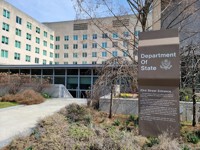 (Yonhap Interview) U.S. will do 'all' it can to back S. Korea in case of China's economic coercion: official
(Yonhap Interview) U.S. will do 'all' it can to back S. Korea in case of China's economic coercion: official -
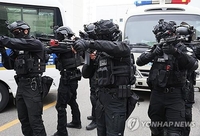 Police tracking down bomb threat on public facility
Police tracking down bomb threat on public facility -
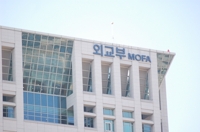 S. Korea, China, Japan in talks to hold trilateral summit May 26-27: official
S. Korea, China, Japan in talks to hold trilateral summit May 26-27: official -
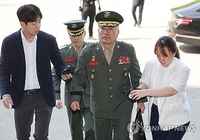 (LEAD) Marine Corps commander summoned by CIO for questioning on alleged influence-peddling case
(LEAD) Marine Corps commander summoned by CIO for questioning on alleged influence-peddling case -
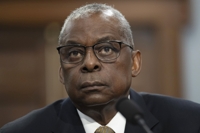 Defense chiefs of U.S., Australia, Japan decry N.K.-Russia military cooperation
Defense chiefs of U.S., Australia, Japan decry N.K.-Russia military cooperation

